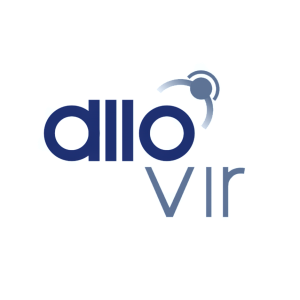FDA Grants Orphan Drug Designation (ODD) to AlloVir’s Posoleucel, an Allogeneic, Off-the-Shelf, Multi-Virus Specific T-Cell Therapy, for the Treatment of Virus-Associated Hemorrhagic Cystitis
AlloVir (NASDAQ: ALVR) announced that the FDA has granted Orphan Drug Designation (ODD) to its investigational therapy, posoleucel (Viralym-M, ALVR105), for treating virus-associated hemorrhagic cystitis (HC). This therapy targets six significant viral pathogens affecting immunocompromised patients. Posoleucel has also received Regenerative Medicine Advanced Therapy (RMAT) and Orphan Medicinal Product (OMP) designations from the EMA. The ongoing Phase 3 study aims to address the urgent need for effective treatments in HSCT patients suffering from HC, a serious complication.
- FDA granted Orphan Drug Designation (ODD) to posoleucel for virus-associated hemorrhagic cystitis, highlighting urgent treatment need.
- Posoleucel has also received RMAT designation from FDA and OMP and PRIME designations from EMA, indicating strong regulatory support.
- Ongoing Phase 3 study is enrolling patients, demonstrating commitment to advancing clinical development.
- Currently no approved antiviral treatments for virus-associated HC, indicating a high unmet medical need.
- Up to 90% of HC cases are caused by BK virus, reflecting a significant challenge in treating affected patients.
Insights
Analyzing...
ODD for posoleucel adds to RMAT designation by FDA and OMP and PRIME designations by EMA
Phase 3 registrational study of posoleucel in virus-associated hemorrhagic cystitis is ongoing
An inflammatory disease of the bladder, virus-associated HC is a serious complication of hematopoietic stem cell transplantation (HSCT) that can significantly prolong hospitalization and increase mortality and for which there are currently no approved or effective antiviral treatment options. The company’s Phase 3 study of posoleucel for the treatment of virus-associated HC is ongoing and enrolling adult and pediatric patients following allogeneic HSCT (allo-HSCT).
“This Orphan Drug Designation acknowledges the urgent need for new treatment options for patients who have undergone hematopoietic stem cell transplantation and are at risk for developing viral infections and hemorrhagic cystitis,” said Ercem Atillasoy, M.D., Chief Regulatory and Safety Officer,
In addition to this ODD, posoleucel has been granted Regenerative Medicine Advanced Therapy (RMAT) designation from the FDA, and Orphan Medicinal Product (OMP) and PRIority MEdicines (PRIME) designations from the
ODD is granted by the FDA to drugs or biological products intended for the treatment of diseases or conditions that impact fewer than 200,000 people in the
About Virus-Associated Hemorrhagic Cystitis (HC)
Virus-associated HC is a well-described complication after HSCT in which a viral infection causes the bladder lining to become inflamed, resulting in hematuria, or blood in the urine. More than half of patients with HC experience clot formation and/or severe bladder hemorrhage with renal impairment. Bleeding may be life-threatening, requiring urologic interventions including cystectomy, or the removal of the urinary bladder.
Clinical manifestations of HC include kidney dysfunction or failure, blood in the urine and severe abdominal pain frequently requiring narcotics. With no approved or effective antiviral treatments, virus-associated HC is primarily managed with supportive care, including forced diuresis, continuous bladder irrigation, platelet transfusion and anti-spasmodics, in addition to urinary and opioid analgesics.
Newly published data1 demonstrate that patients with virus-associated HC had a
HC can be caused by several viruses, including AdV and CMV; however, up to
About Posoleucel (Viralym-M, ALVR105)
AlloVir’s lead product, posoleucel, is in late-stage clinical development as an allogeneic, off-the-shelf, multi-virus specific T-cell therapy targeting six viral pathogens in immunocompromised individuals: BKV, CMV, AdV, EBV, HHV-6 and JCV. In the positive Phase 2, proof-of-concept CHARMS study, more than
About AlloVir’s Ongoing Clinical Studies with Posoleucel
- A Phase 3 (NCT04390113), multicenter, double-blind, placebo-controlled study to assess the efficacy and safety of posoleucel for the treatment of patients with virus-associated HC following allo-HSCT is open and recruiting patients.
-
A proof-of-concept study (NCT04693637) targeting the prevention of clinically significant disease caused by BKV, CMV, AdV, EBV, HHV-6 and JCV in patients following allo-HSCT is open and recruiting patients. Approximately
90% of all allo-HSCT patients experience at least one infection associated with BKV, CMV, AdV, EBV or HHV-6, and more than60% of these patients experience infections caused by two or more of these five viruses within 100 days post allo-HSCT. Data from the open-label phase of the study are anticipated before year-end. -
A Phase 2 proof-of-concept study (NCT04605484) for the preemptive treatment of BK viremia in adult kidney transplant recipients is also ongoing and recruiting patients. BK viremia, which is detected in up to
20% of kidney transplant patients, can lead to decreased kidney survival and a return to end-stage renal disease and dialysis.
For more information on clinical trials of posoleucel, visit www.clinicaltrials.gov.
About
Forward-Looking Statements
This press release contains forward-looking statements within the meaning of the Private Securities Litigation Reform Act of 1995, as amended, including, without limitation, statements regarding the development and regulatory status of our product candidates, the planned conduct of its clinical trials and its prospects for success in those studies and trials, and its strategy, business plans and focus. The words “may,” “will,” “could,” “would,” “should,” “expect,” “plan,” “anticipate,” “intend,” “believe,” “estimate,” “predict,” “project,” “potential,” “continue,” “target” and similar expressions are intended to identify forward-looking statements, although not all forward-looking statements contain these identifying words. Any forward-looking statements in this press release are based on management’s current expectations and beliefs and are subject to a number of risks, uncertainties, and important factors that may cause actual events or results to differ materially from those expressed or implied by any forward-looking statements contained in this press release, including, without limitation, those related to AlloVir’s financial results, the timing for the initiation and successful completion of AlloVir’s clinical trials of its product candidates, whether and when, if at all, AlloVir’s product candidates will receive approval from the
References
-
Economic and Clinical Burden of Virus-Associated Hemorrhagic Cystitis in Patients Following Allogeneic Hematopoietic Stem Cell Transplantation in
the United States ; McGuirk, Joseph et al.; Transplantation and Cellular Therapy, Official Publication of theAmerican Society for Transplantation andCellular Therapy , Volume 27, Issue 6, 505.e1 - 505.e9; https://www.astctjournal.org/article/S2666-6367(21)00708-9/fulltext.
View source version on businesswire.com: https://www.businesswire.com/news/home/20211004005195/en/
schoi@allovir.com
Source:






